The Federated International GemLab SA in association with the International Colored Gemstone Association now recognises Gold Sheen Sapphire as a unique variety of corundum.
Six certificates were issued by the FIG Bangkok office on 20th November.
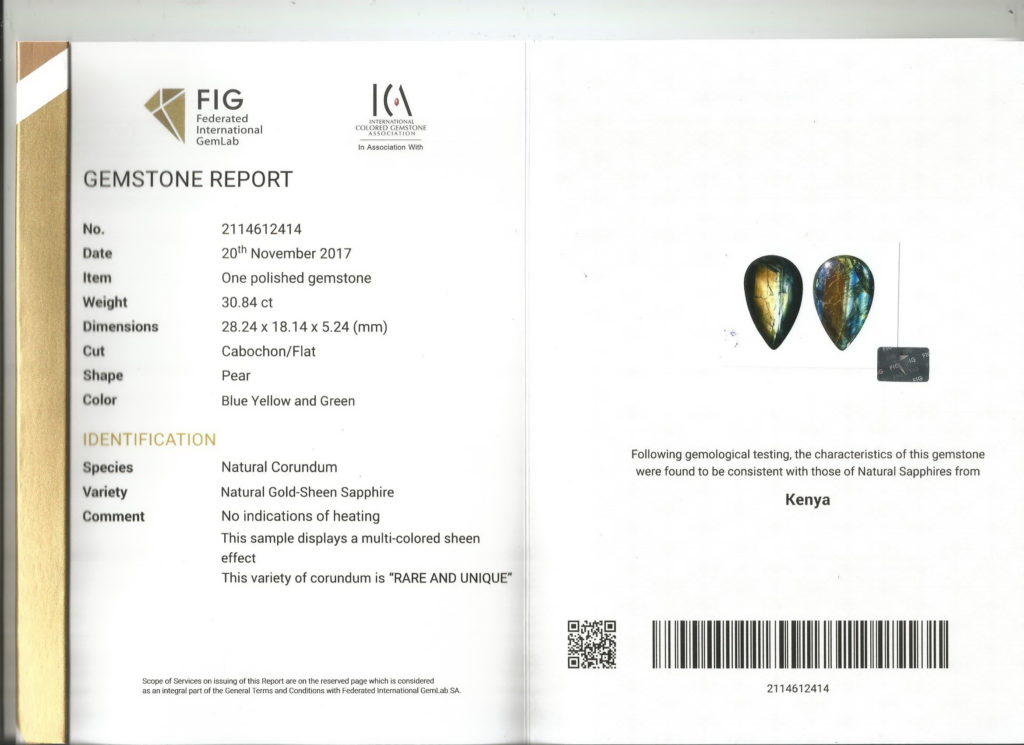
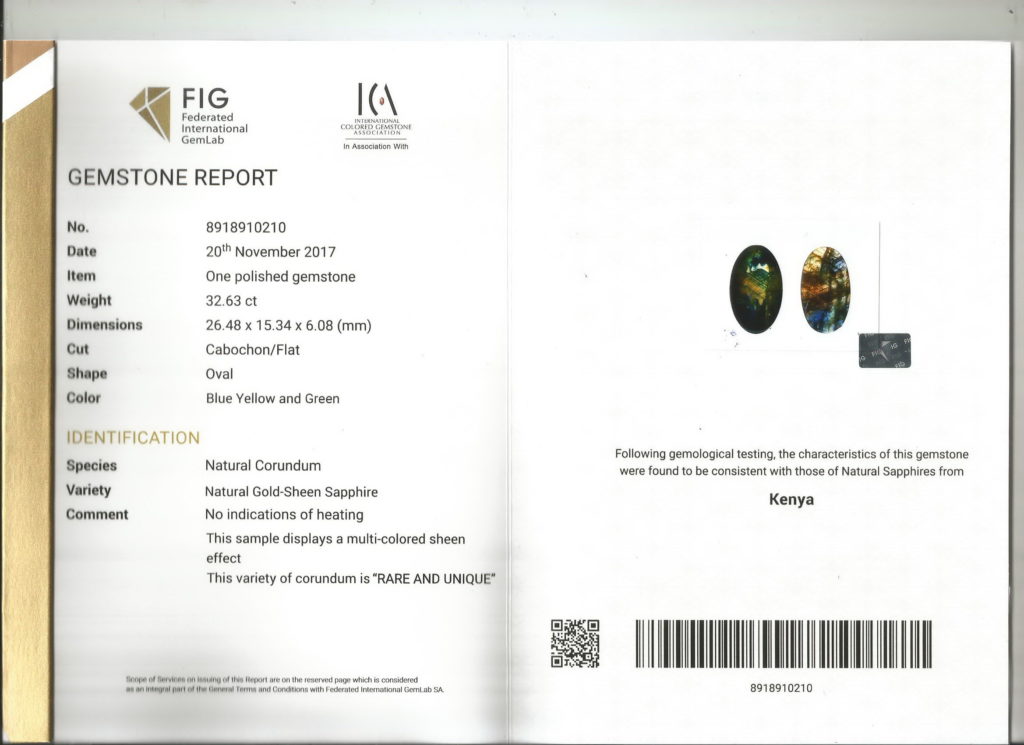
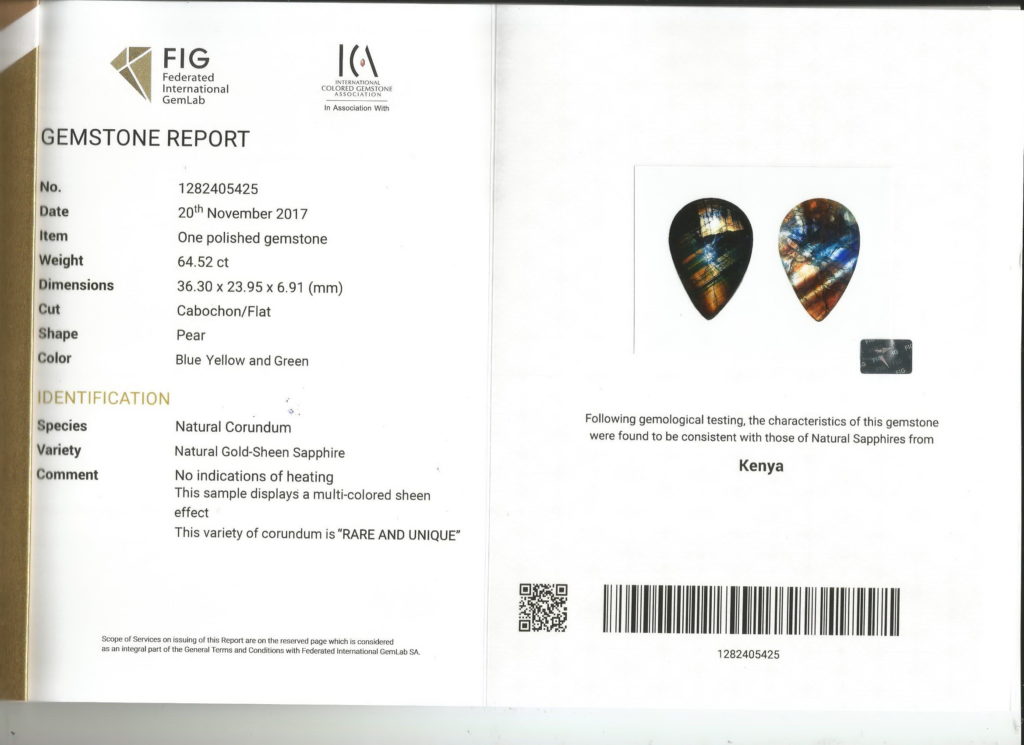
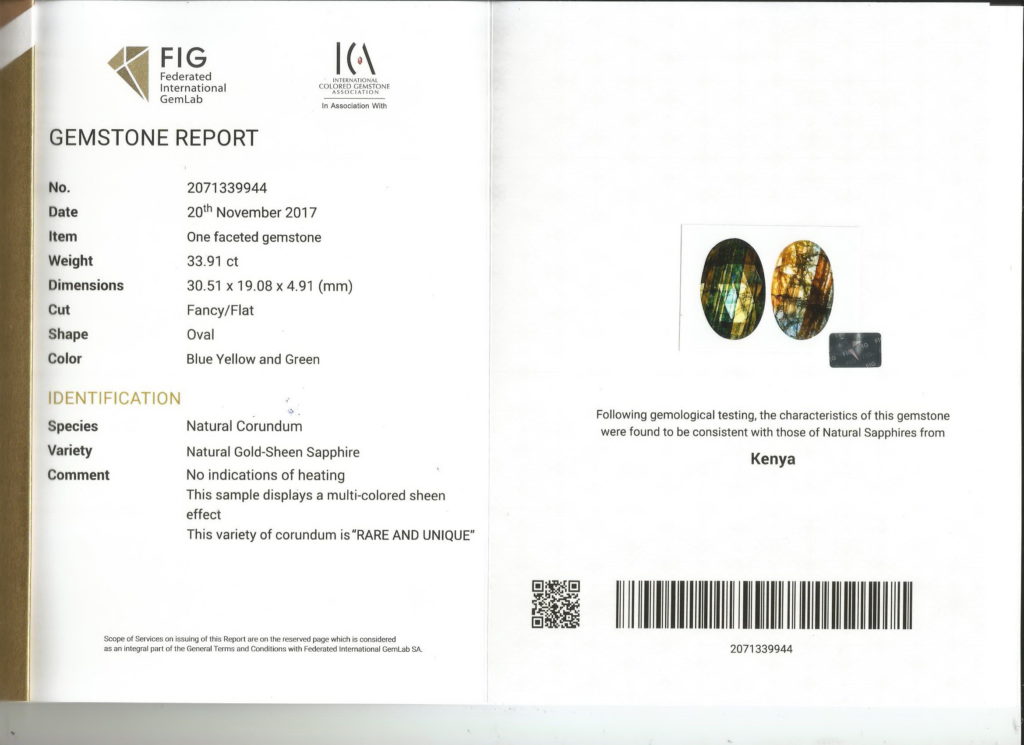
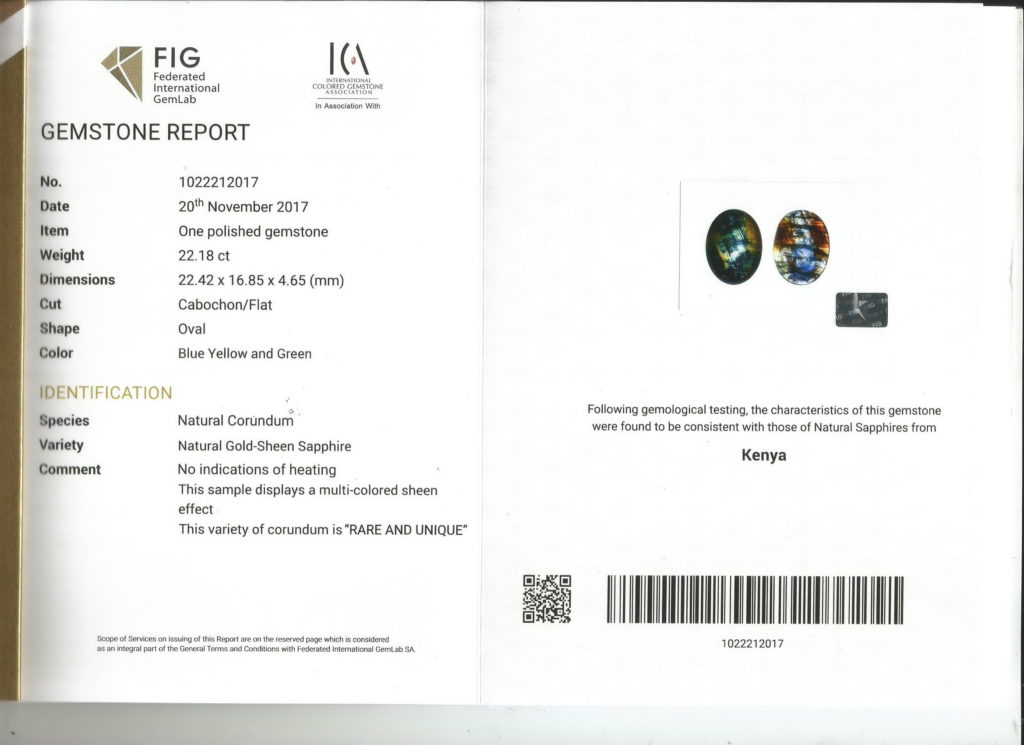
The Federated International GemLab SA in association with the International Colored Gemstone Association now recognises Gold Sheen Sapphire as a unique variety of corundum.
Six certificates were issued by the FIG Bangkok office on 20th November.





This is the price update for Gold Sheen Sapphire for the 2nd half of 2017. It covers the reported sale prices from the September Hong Kong and Bangkok Gem and Jewelry Trade Fairs.
I have made the following changes to the chart layout:
Since price data comes principally from major trade fairs, ‘Trade Price’ of pieces sold is a more reliable indicator of current price. There are enough data points now to give a meaningful moving average, this should provide a good trend indicator for the future price.
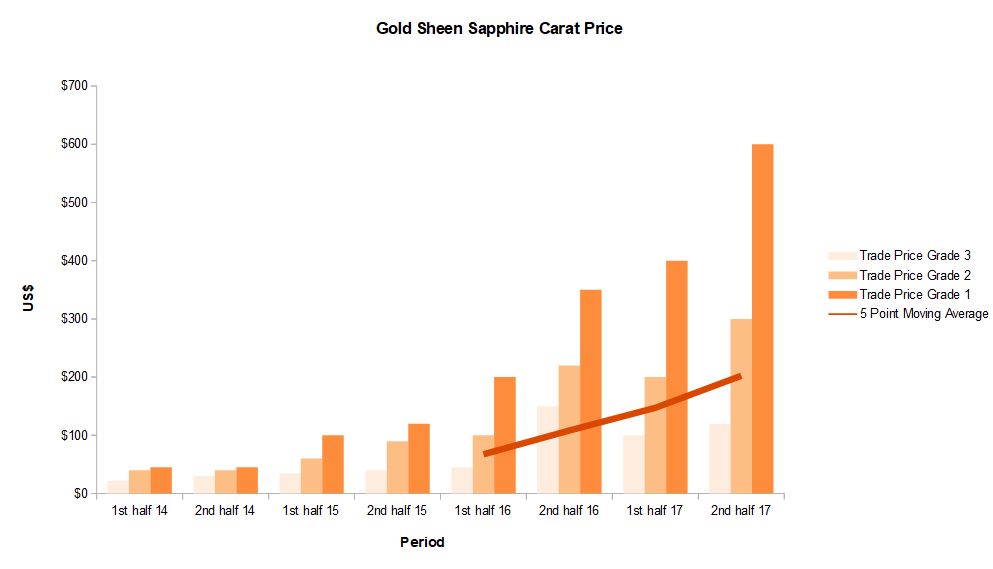
.
Natural ruby with no heat for $15 per carat.
Over 300 pieces of natural ruby cabochons. No heat or any treatment. These are factory 2nds and all have eye visible surface defects and inclusions.
Weights are from 0.3ct to 29ct.
I will sell these for $15 per ct, or make an offer for the whole parcel.
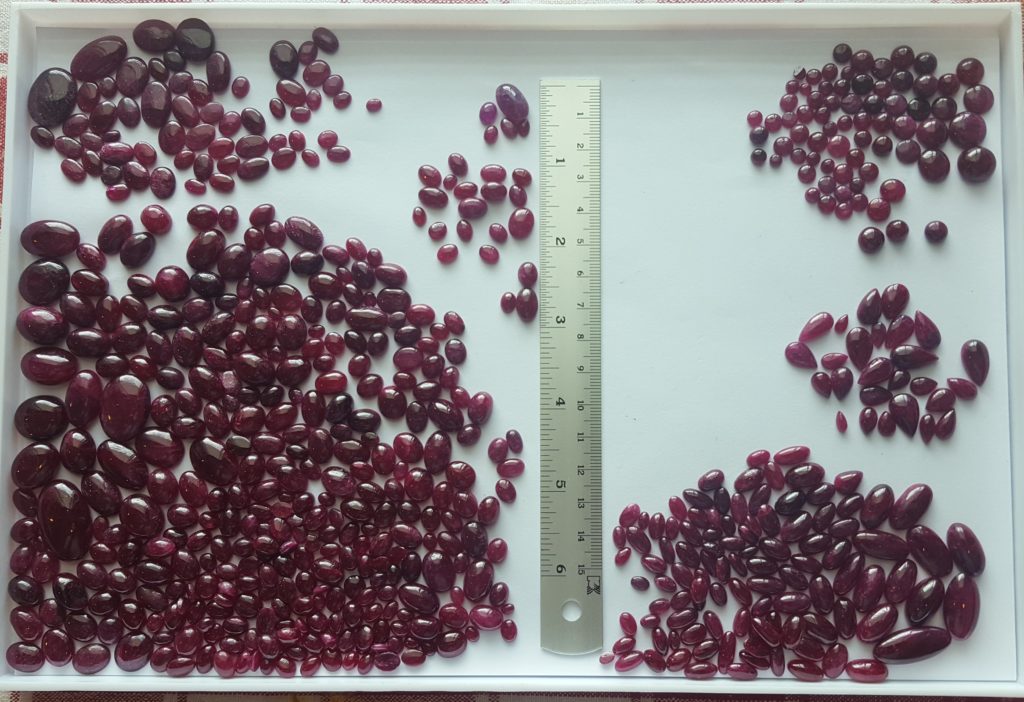
Photo taken at midday with natural light.
New Gold Sheen Sapphire ‘diamond cut’ direct from the factory from carefully selected highest grade rough.
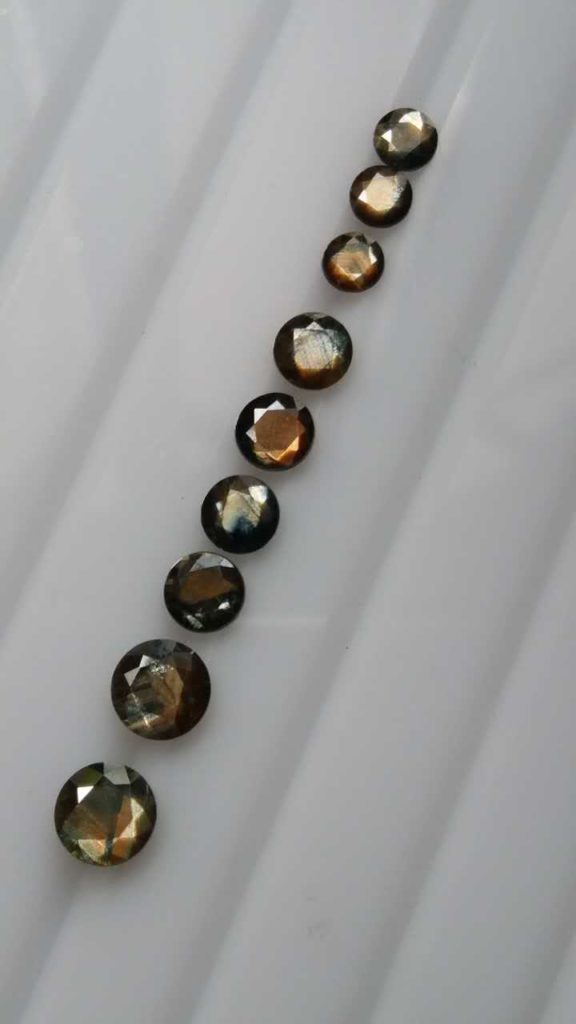
After careful selection of the rough, about 10% of material is suitable for this high grade faceting. Once faceted, only one or two pieces in 10 make this selection. Most pieces show colour change from metallic copper/gold in incandescent light to blue/green in natural light.
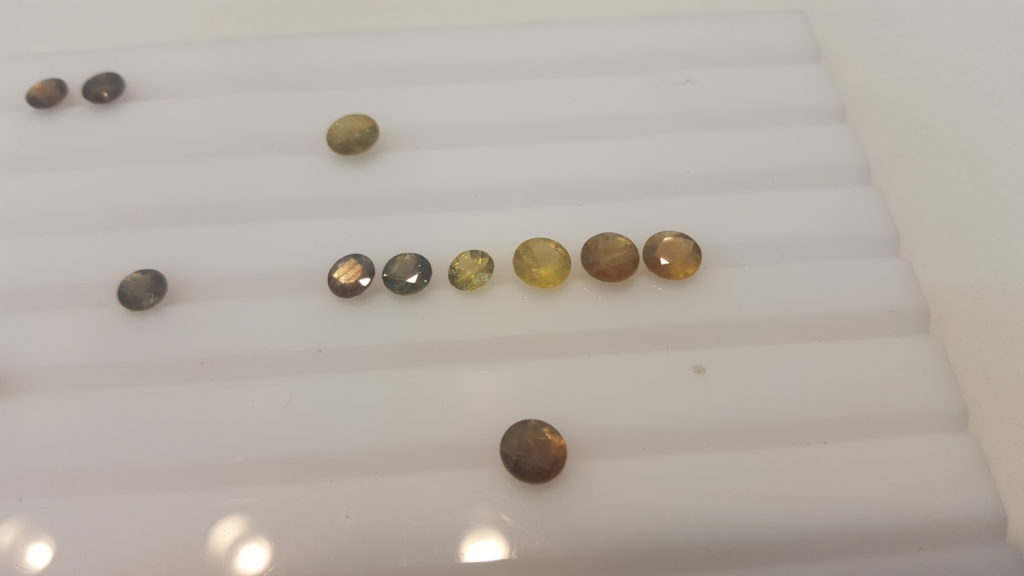
While most pieces come opaque, typical of Gold Sheen Sapphire, about 20% come as translucent with yellow, green/yellow and gold hues.
All are available in all calibrated sizes from 3mm to 10mm, or can be cut to order.
The first and second quarter of 2017 have seen some interesting movement on the price of gold sheen sapphire.
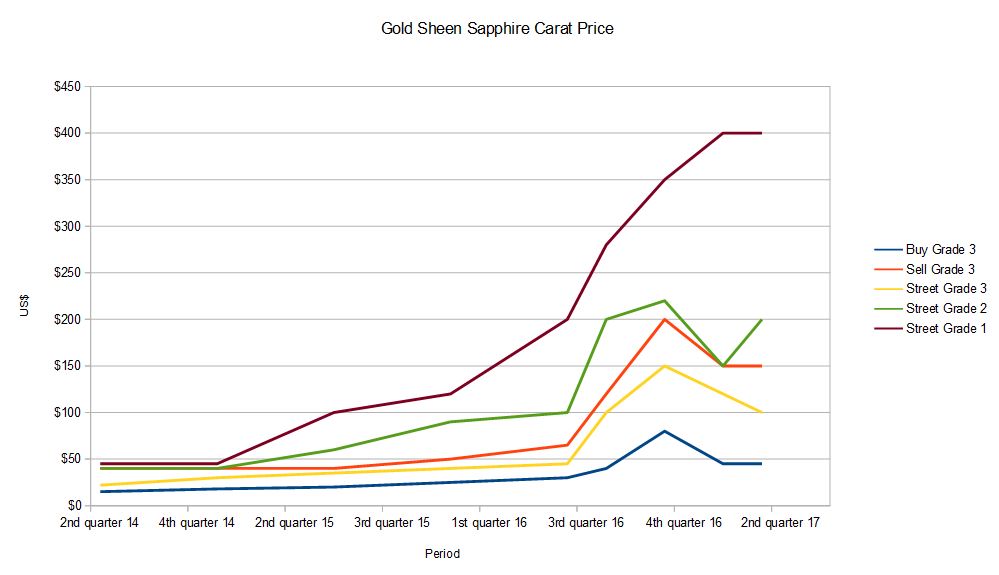
The price for top grade stones has increased slightly in Q1 and remains stable though Q2. Meanwhile prices for all other grades took a dip in Q1 and remain constant in Q2, with the exception of the street price of grade 2 stones which improved in Q2.
It seems clear that the market is becoming more discerning, reflected in the willingness to pay for best quality material. The trend has been for increasing sales from repeat buyers, which have exceeded reported sales from first time buyers for the first time in Q1, and continuing into Q2. This is further reflected in the price drop of lowest grade material, where buyers have been able to negotiate pricing based on large volume orders.
Special promotions for new cutting and polishing techniques as well as the introduction of new cut types and increased presence at trade shows have all contributed to fluctuations in mid to high grade pricing.
Price Chart Key:
Ruby mined Madagascar and cut in Bangkok is showing excellent color.
These are some of the latest cabs from the Madagascar rough ruby bought last year.
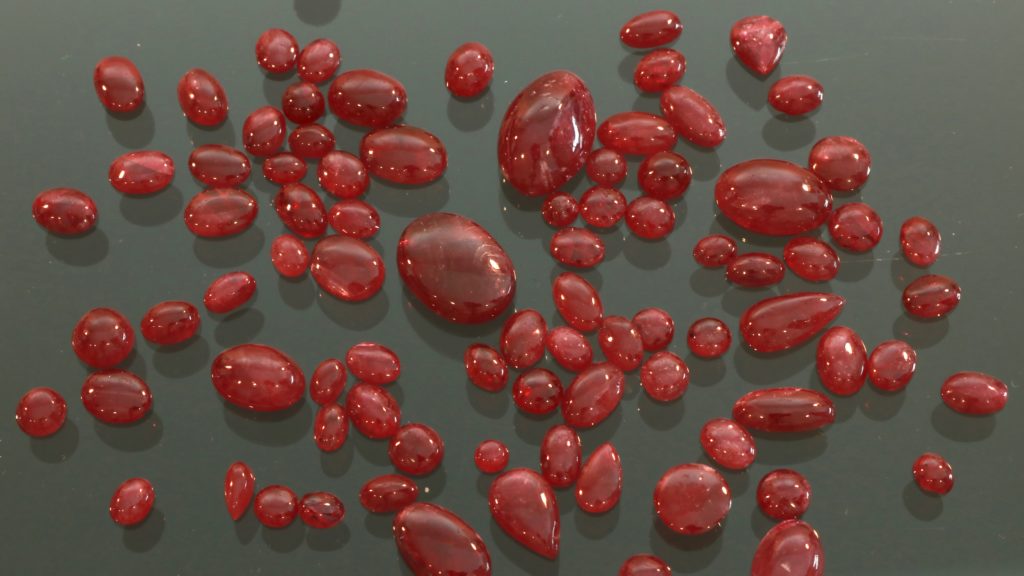
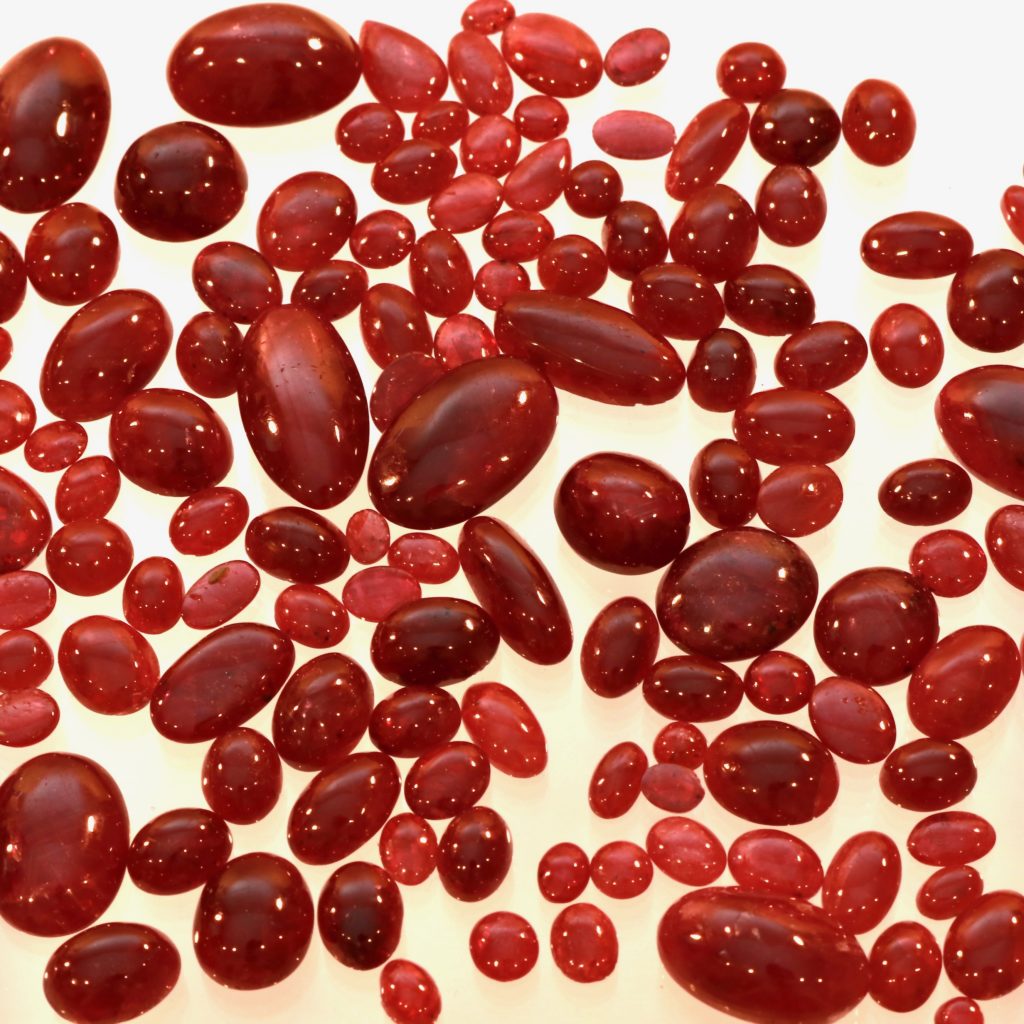
These are straight from the mined rough, with no heat or other treatment.
How do you like your coffee? Dark and strong, like my rubies.
We can cut to any shape/size and calibrate to 0.1mm tolerance.
Gold sheen sapphire and dark, vivid ruby is ideal for men’s jewelry.
Typical design styles for men’s jewelry use flat mountings with large(er) size gemstones. This requires a faceted gem with a larger table size, or flatter cabochon that presents well, which favors opaque over transparent stones.
For example, this gold sheen sapphire ring has a 45ct stone with a 22mm x 16mm table. The faceting picks up brass, copper and gold tones as light plays across the surface.
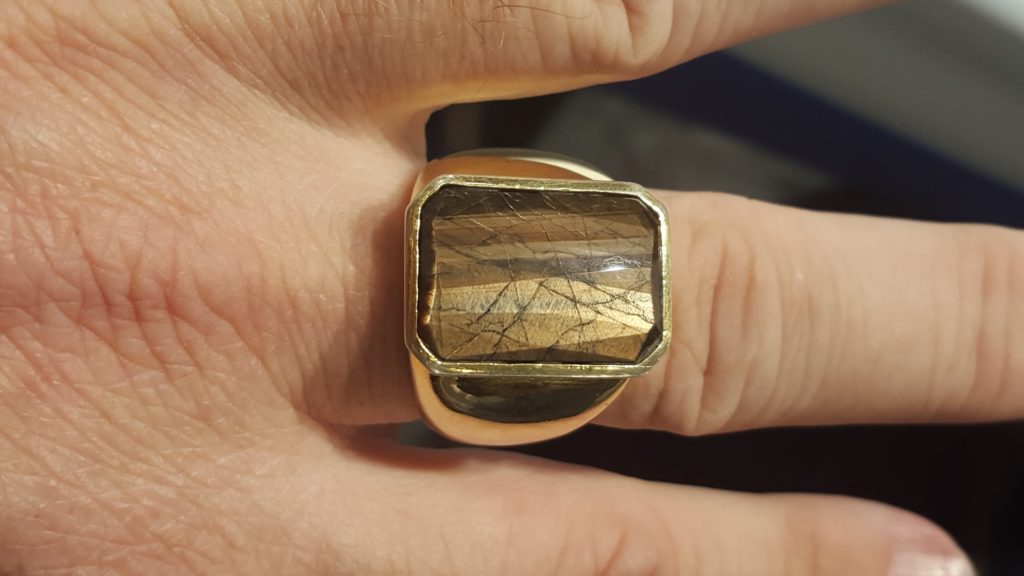
The rubies in these rings are cabbed from the same piece of rough ruby. In larger sizes, the dark tone with strong saturation is great for men’s rings, yet still beautifully feminine in smaller sizes.
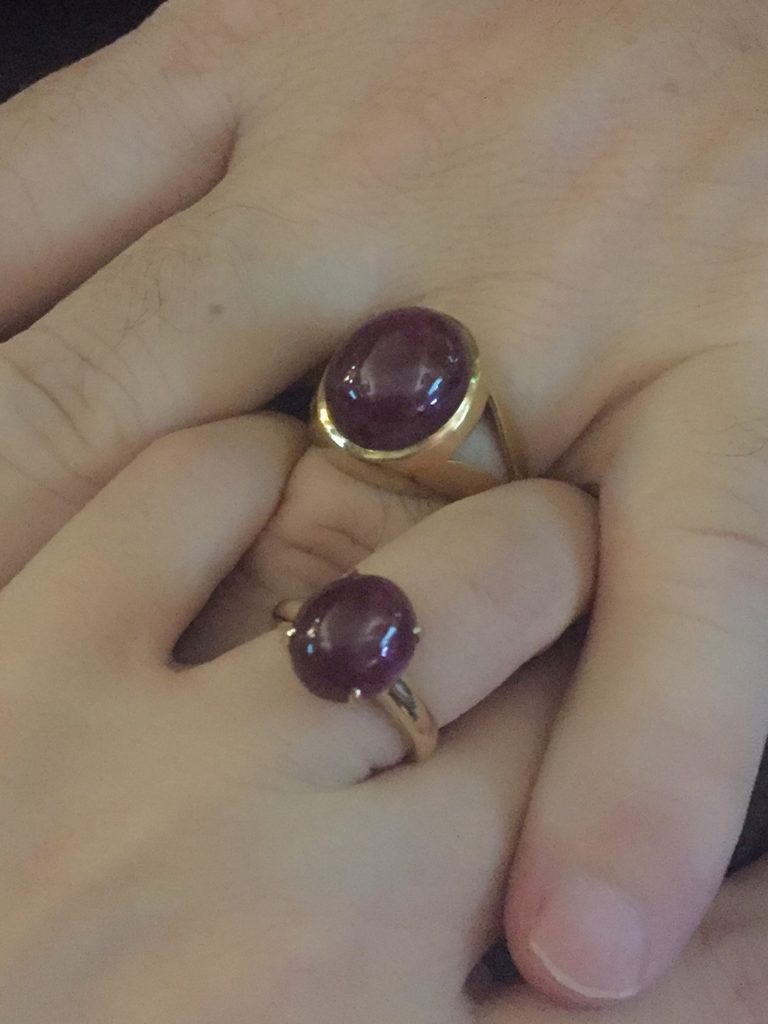
What are the criteria that gemological institutes follow to determine if a sapphire is a ruby? Can there be pink rubies?
The process to determine a ruby is straightforward:
There is no pink ruby, pink corundum is called pink sapphire. Any colour of sapphire that is not blue is generally known as fancy sapphire.
However, what is ‘red’ and when does light red become pink? Is reddish orange still red, etc is a matter of individual opinion. Both hue and tone have to be taken into account.
This is a colour hue chat:
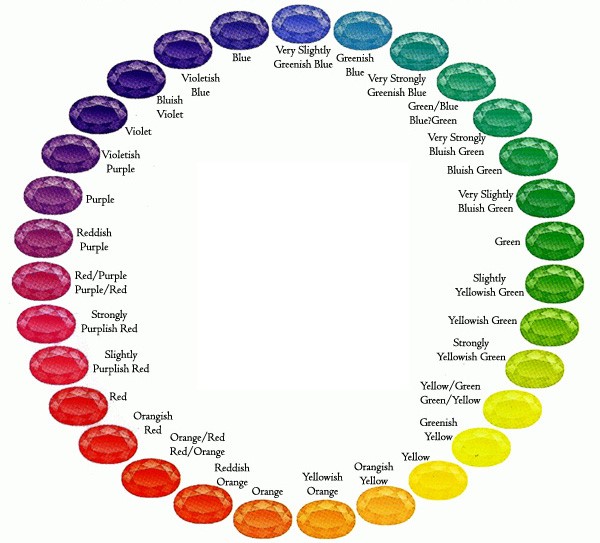
As you can see, there is no ‘pink’. Pink is a lighter tone of red.
This is a tone chart:
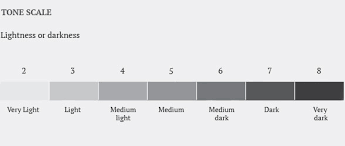
To make it confusing, tone is often referred to as saturation. While this chart says ‘saturation’, what it is really showing is tone:
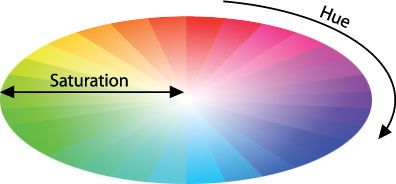
So when grading a stone as ruby rather than pink or fancy sapphire, it needs to be ‘red’ with medium or better tone. Subjectively, one grade difference is acceptable – what I might call ‘red’, you might call ‘slightly purplish red’, or what I might call ‘medium’ tone, you might call ‘medium light’, and that is ok.
But there is no absolute definition for ruby, some labs might class ruby as anything with red in it, others might say red only, or some might include orangish red and slight purplish red.
Just to be clear about ‘saturation’, the saturation scale as defined by the GIA goes from ‘brownish’ to ‘vivid’ for red gemstones. It should make no difference to the actual classification of whether a gem is ruby or not.
Confusing, right? Yes, at first. But once you get your ‘eye in’ for ruby, you can pretty much tell at a glance. A definition I like to use is that if corundum can return a red ‘flash’ (a property of ruby is it returns more red light than it receives), then it deserves to be called ruby.
This is a sample of ruby colour variation:

The best possible colour of ruby is called ‘pigeon blood’, but that is a whole other story.